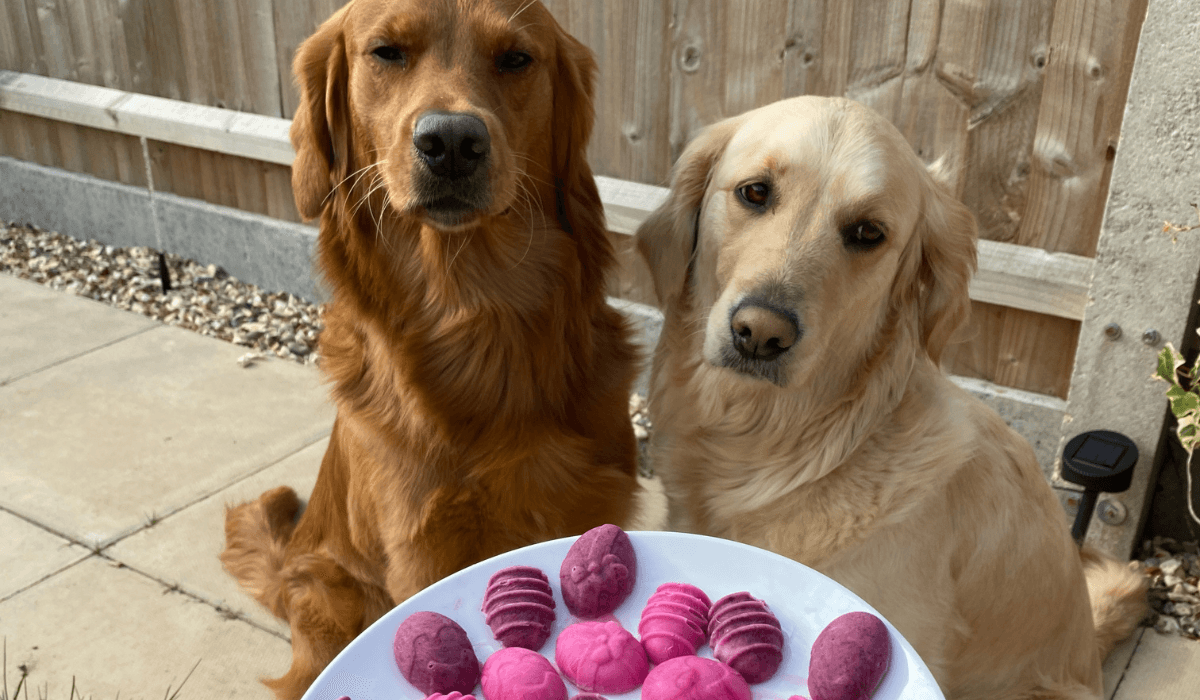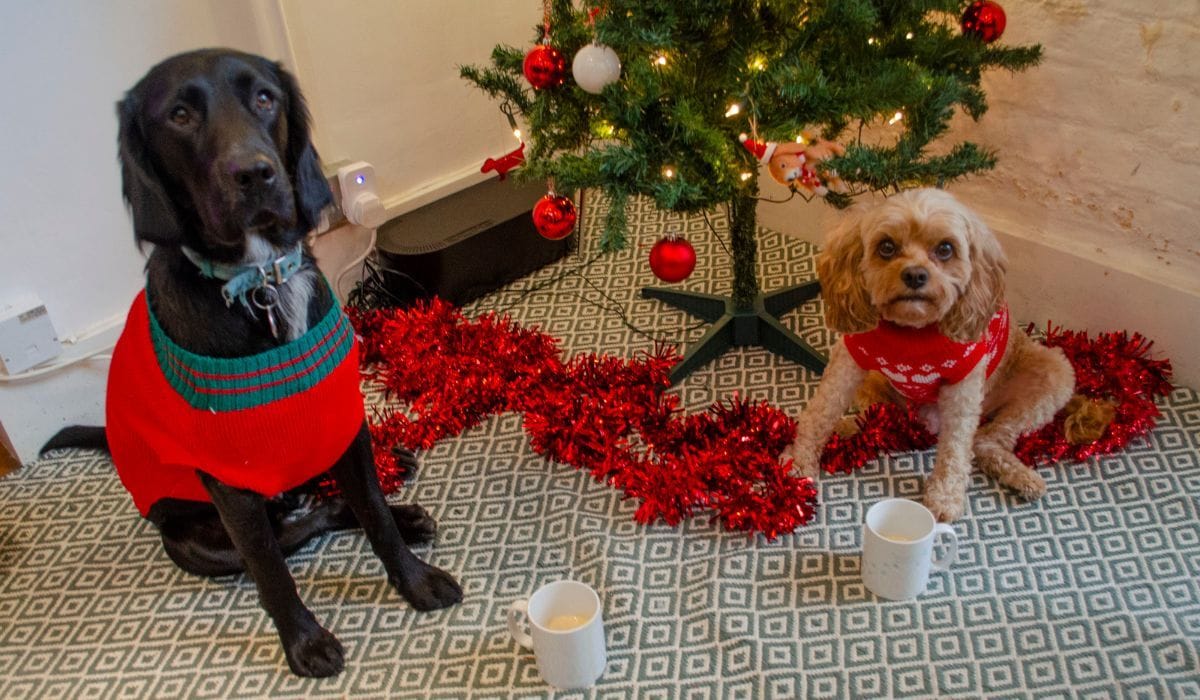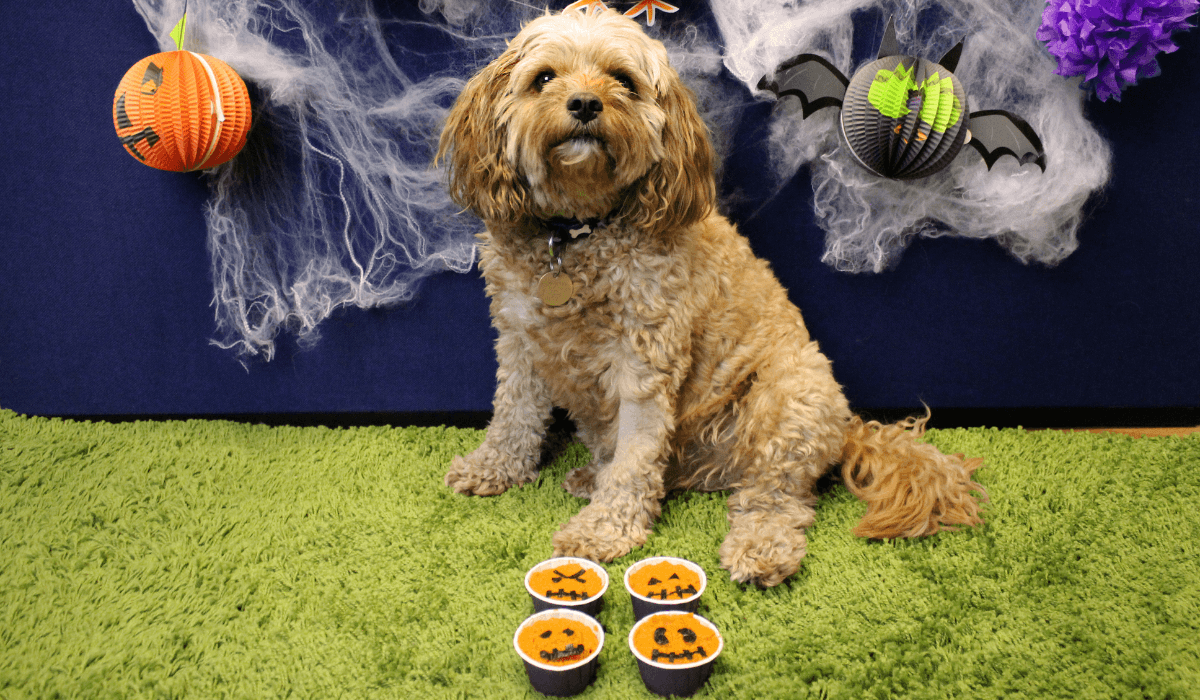Written by Dr. David Tweedle, BVetMed MRCVS Clinical Director
Reviewed by Dr Jill McMaster BVM&S MBA MRCVS, Veterinary Surgeon and in-house expert at BorrowMyDoggy on 9 Jun 2023
When Christmas comes round, it’s important to remember that many popular festive foods are harmful to dogs. Dave Tweedle, My Family Vets Vet & Clinical Director at Natures Vet in Somerset, explains more…

Sometimes accidents happen, and if your dog eats a small morsel, it’s not as bad as eating a full portion. Nevertheless, as a precaution, it’s best to keep each item on the list below well away from your dog!
Chocolate
Chocolate contains theobromine, which is highly poisonous to dogs. If your dog eats any chocolate-based product – especially cocoa powder and dark chocolate, but including ice cream and cakes – it can have a nasty effect on their heart, kidneys or nervous system. In severe cases, chocolate poisoning can be fatal.
What if my dog gets a tiny bit of chocolate?
If your dog eats a tiny crumb of chocolate after it falls onto the floor, they’ll probably be alright – but keep an eye on them just in case! If they eat a significant amount, make a note of how much and which type of chocolate they’ve eaten and call your vet; they’ll work out if your dog has eaten a toxic amount.
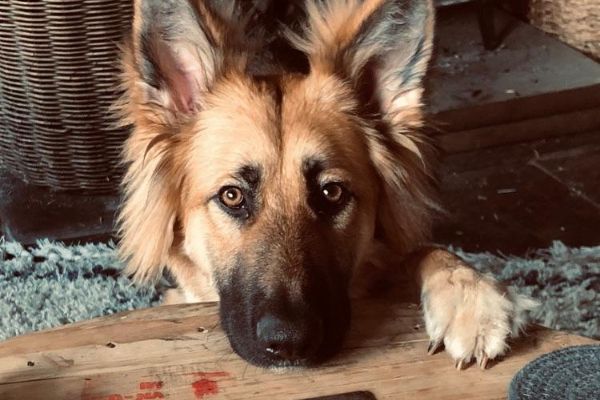
Grapes and raisins (in Christmas cake and pudding!)
Keep your Christmas pudding, Christmas cake and sweet mince pies to yourself! If your dog eats grapes or raisins, they could be in danger of fatal kidney failure. Instead, why not make your pooch some pup friendly candy canes?
Dog ate one raisin?
Some dogs are more prone to the toxicity than others so it’s difficult to be 100% sure. If a grape/raisin drops from your plate and your dog snatches it, don’t tempt fate! Give your vet or emergency care provider a call and they’ll advise further.
Xylitol
Xylitol is a sweetener used in lots of sugar-free products like chewing gum, sweets, dental products, peanut butter and even baked goods. It can be tricky to know what contains xylitol and what doesn’t but here’s a good rule to follow – if in doubt, leave it out!
What if my dog gets a tiny bit?
Even a small amount of xylitol can be fatal to dogs. For example, just one stick of chewing gum can cause toxicity levels to rise to a dangerous amount. If your dog eats anything that contains xylitol, take no chances – contact your vet or emergency care provider right away.
Bones
Cooked bones can split and get lodged in your dog’s throat, damaging their internal tissue and fracturing their teeth. The same goes for raw bones… which also carry the risk of salmonella.
Not even one?
Bones aren’t toxic, but they are dangerous. With so many vet-approved doggy treats out there these days, feeding your dog a real bone simply isn’t worth the risk.

Alcohol
Be sure to keep an eye on your alcoholic drinks, which are popular at Christmas. Alcohol can cause many problems for dogs, including vomiting, depression, severe dizziness and breathing problems.
Dog got one drop of alcohol?
While one drop of spilt beer won’t cause any serious problems, it’s important to minimise the risk as best you can. Keep your drinks up high where your dog can’t reach, store bottles in closed cupboards and don’t leave dogs unsupervised with your drinks!
Corn on the cob
Dogs don’t have the easiest time digesting corn. They may also swallow the cob, which could get lodged in their throat.
Dog got a tiny morsel of corn?
A few pieces of corn is nothing to worry about – but keep an eye out anyway, and avoid feeding it to your dog deliberately. When it comes to a full cob, or a cob’s worth of corn, just make sure to keep it out of your dog’s reach.
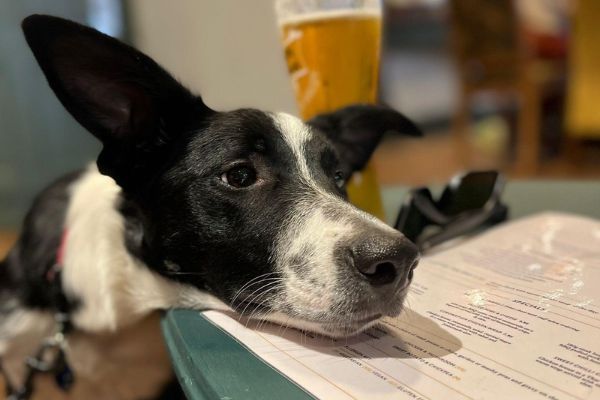
Onions, garlic and chives
These culinary staples can damage your dog’s stomach or red blood cells if they eat them, so take extra care while cooking. When chopping onions and garlic, think about keeping your dog out of the kitchen – and give the floor a good sweep before they’re allowed back in.
Dog got a tiny piece?
The tiniest amount (0.5% of total bodyweight) can cause toxicity. It may not be the end of the world if your dog eats a miniscule piece from the floor – but why risk it, right?
Nuts
Nuts are a choking hazard and can also cause dogs to suffer depression, hyperthermia and vomiting.
Dog got one individual nut?
Don’t worry too much if this happens – just keep an eye out to make sure your dog doesn’t choke, and take care not to drop any more nuts!
Fatty foods
Fatty foods like sausages and turkey skin are harmless in small doses but they are very tasty… and if you treat your dog to this type of snack, they’ll likely pester you for more and more and more until you give in and it becomes a habit. When it becomes a habit, you’ll be feeding them fatty foods in large quantities: this can give them an upset stomach and in some cases lead to pancreatitis – a very serious, painful condition.

Locate your nearest after-hours care provider and save their number
Take note of your regular vet’s Christmas opening hours. Just to be on the safe side, it’s a great idea to locate your nearest emergency clinic and save their number. That way, you can act quickly if there is an emergency.
What treats can I feed my dog this Christmas?
There are plenty of healthy, vet-approved doggy treats on the market. I recommend giving them an activity-based gift, such as a treat puzzle or ball to keep them busy on Christmas day. If you’re unsure, or if you’d like more advice, just ask your vet. They’ll be able to give you advice that’s specific to your dog.
Of course, there are lots of treats you CAN give to your dog over Christmas! I highly recommend giving them an activity-based gift, such as a treat puzzle or ball to keep them busy on Christmas day. You can even take a look at these homemade dog treat recipes. If you’re unsure, or if you’d like more advice, just ask your vet. They will be able to give you advice that is specific to your dog.
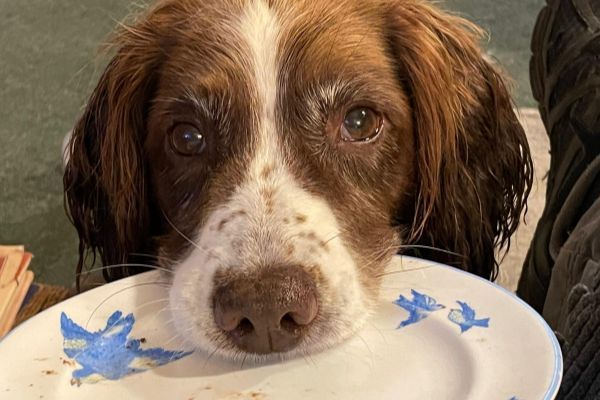
This article is for information only, and should never replace any advice, diagnosis or treatment from your veterinary surgeon. Always contact your local vet or out of hours vet without delay if you have any concerns about your dog.
Other Christmas tips
15 last minute Christmas gift ideas for dog lovers
Celebrating your dog's first Christmas
Christmas dog ornaments/baubles



